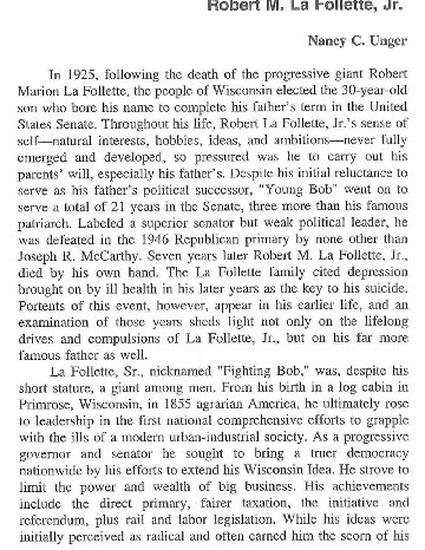
In 1925, following the death of the progressive giant Robert Marion La Follette, the people of Wisconsin elected the 30-year-old son who bore his name to complete his father's term in the United States Senate. Throughout his life, Robert La Follette, Jr. ' s sense· of self- natural interests, hobbies, ideas, and ambitions-never fully emerged and developed, so pressured was he to carry out his parents' will, especially his father's. Despite his initial reluctance to serve as his father's political successor, "Young Bob" went on to serve a total of 21 years in the Senate, three more than his famous patriarch. Labeled a superior senator but weak political leader, he was defeated in the 1946 Republican primary by none other than Joseph R. McCarthy. Seven years later Robert M. La Follette, Jr., died by his own hand. The La Follette family cited depression brought on by ill health in his later years as the key to his suicide. Portents of this event, however, appear in his earlier life, and an examination of those years sheds light not only on the lifelong drives and compulsions of La Follette, Jr., but on his far more famous father as well.
